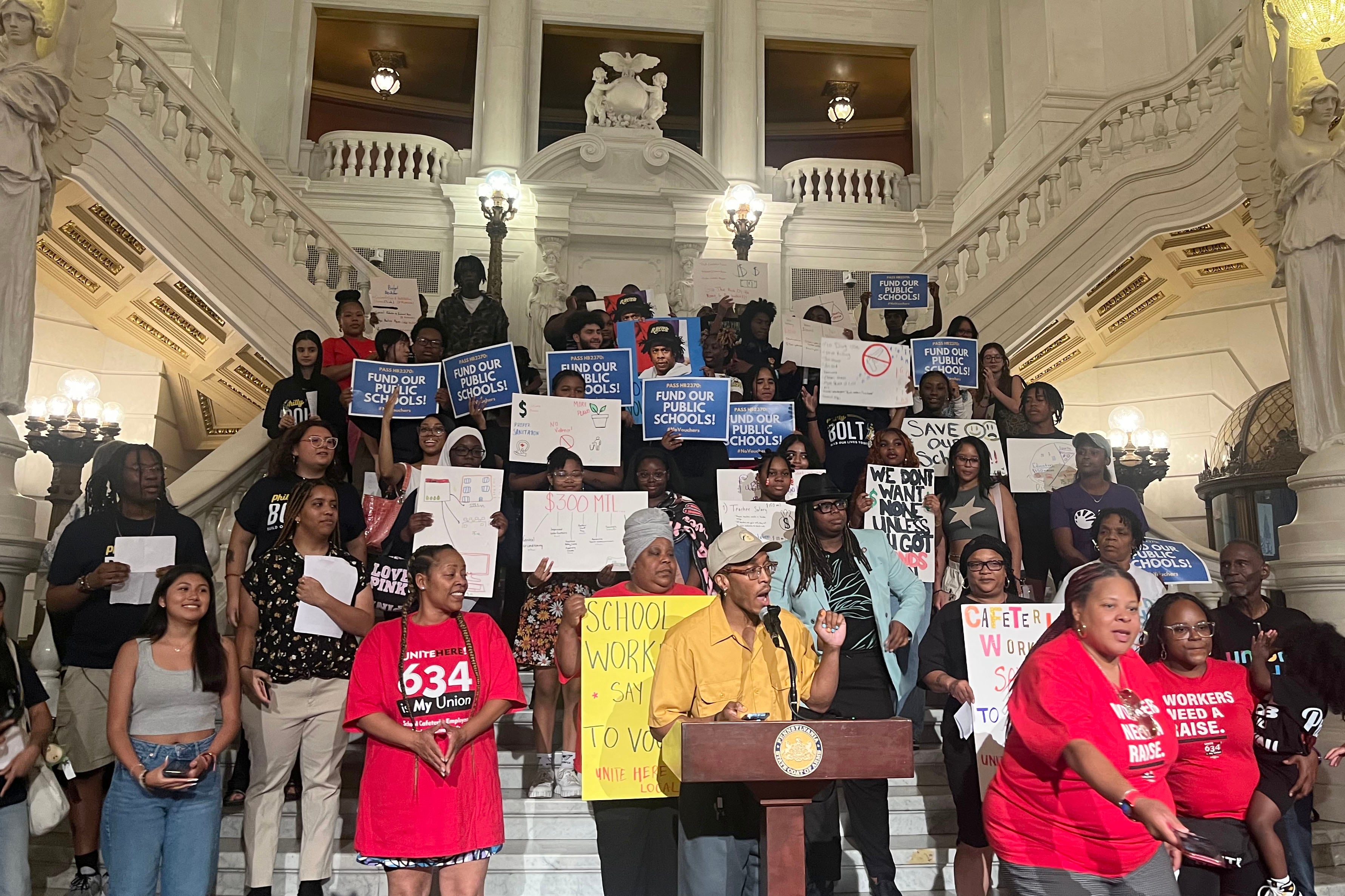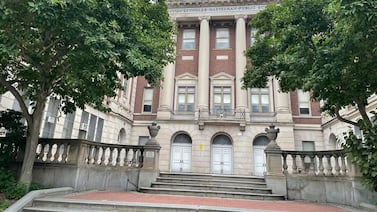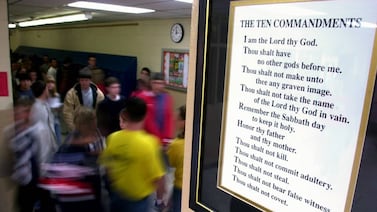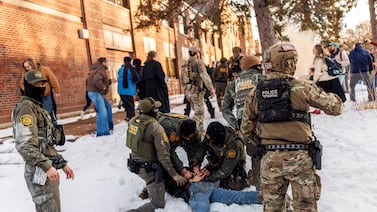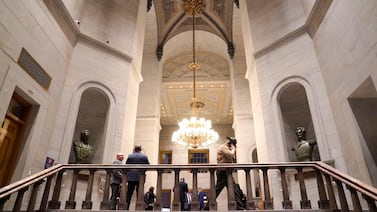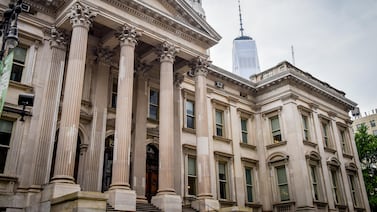Sign up for Chalkbeat Philadelphia’s free newsletter to keep up with the city’s public school system.
Students from 17 Philadelphia high schools rallied at the state capitol in Harrisburg last week to demand that lawmakers provide adequate support to their underfunded public schools.
The roughly 40 students who participated in the rally were part of a Youth Leadership Fellowship at PhillyBOLT — which stands for Building Our Lives Together — to learn how to create change in their communities through field trips and curriculum. They also went on a similar trip to the city in May to stress the importance of school funding.
“Schools all over the city don’t have adequate central air systems; they have worn down books and school supplies, and the buildings are literally collapsing at the seams,” said Mecca Patterson-Guridy, who spoke at the rally about her experiences as a coach with PhillyBOLT.
The rally on Thursday came as debates about the Pennsylvania budget for the next fiscal year focused in large part on funding for public schools. State legislators have struggled to decide how they will spend on public education — and how much to spend on schools.
One factor complicating the issue is a controversial new private school voucher proposal that most Republicans and some Democrats in the statehouse want to see enacted. Gov. Josh Shapiro, a Democrat, has previously backed vouchers.
Lawmakers have missed a June 30 deadline to approve the state budget.
The most recent budget proposal, approved by the Pennsylvania House and awaiting action in the state Senate, would increase public school spending by $5.1 billion. Philadelphia schools would get more than $242 million more in basic education aid next year and nearly $1.4 billion more over the next seven years, if the budget proposal is adopted as written. They could receive additional funding if lawmakers also adopt controversial changes to how cyber charter schools are funded.
But Republican lawmakers have balked at the proposed increase. They say the state should be cautious about how much of its $15 billion surplus it spends in one year.
The students with PhillyBOLT say if the state has that money, it should be spent on improving public education.
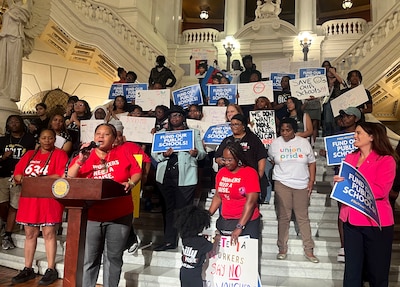
“We hope people do pay attention to the need for funding for public education. I mean actually take action on it,” said Hillary Do, founder and executive director of PhillyBOLT. “Because our schools are very underfunded. It’s a problem across the state, not just in Philadelphia and we want to make sure that our young people get the chance to thrive and that starts in many ways with our public schools.”
Some of the school improvements the students want to see include better school lunches, no asbestos, new sports equipment, and extracurricular activities available for all students.
The possibility of private school vouchers remains controversial amid the tense budget talks. Proponents of the proposed Pennsylvania Award for Student Success (or PASS) scholarships — including the philanthropic arm of rapper Jay-Z’s Roc Nation — say they would not impact public school funding and would help low-income families access schools with smaller class sizes and more resources.
Voucher opponents however say any taxpayer money going to private schools is money that could be going to help fulfill needs like those laid out by the students in PhillyBOLT. Critics also say private schools are not as open to students as public schools.
Azia Ross is a summer intern for Chalkbeat Philadelphia. You can reach her at aziaross@chalkbeat.org.

